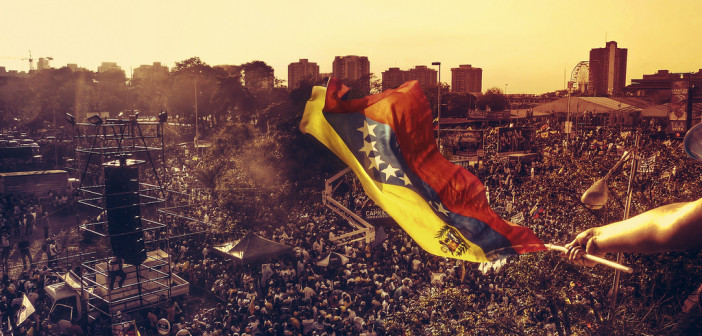Another Latin American nation may be in turmoil, as Venezuela erupts into a state of mass protest. Following anti-corruption demonstrations in Brazil, Venezuela is seeing its own share of popular discontent spill out into the streets.
Venezuelans have taken to the streets to protest against President Nicolas Maduro, the bus driver turned Head of State, who was picked as successor the wildly popular Hugo Chavez. The country is gripped with problems in water and energy supply, increasing labour disputes, and a serious economic crisis.
The country has been plagued with high inflation, which reached 190% in 2015 to become the highest in the world. It is set to quadruple this year, with the International Monetary Fund forecasting it to rise to 720%.
However, the crisis in Venezuela goes beyond the economic. Poor management of water resources and infrastructure have forced Venezuelans to rationing their water and electricity usage. The government, meanwhile, seeks to absolve itself of all culpability, deflecting blame towards the El Niño weather phenomenon, and ‘sabotage’ by political enemies.
In light of the crisis, President Maduro has declared that Venezuela will have a nine days of public holiday, in a last-ditch attempt to save water and electricity in the country. The extensive holiday will take place from 19 to 27 March, and will affect both the public and private sectors.
The Government hopes to achieve electricity and water savings of 40%. Businessmen are unimpressed, arguing that this forced holiday decree will further aggravate the low productivity in the country. Low productivity is already causing product shortages, with medicines and grocery running low in pharmacies and supermarkets.
With all these problems, Venezuela’s opposition began to hold protests to oust President Nicolas Maduro – but the support was weak. Led by Jesús Torrealba, the determined opposition launched a campaign to oust Maduro, seeking a referendum or constitutional amendment to reduce his mandate.
The Democratic Unity Roundtable (MUD), known as Unidad, swept elections in Deceber 2015, gaining a majority in the National Assembly, reducing the party of Chavez to a minority for the first time in 16 years.
Unidad seeks to take advantage of popular discontent over the severe recession, triple-digit inflation, and the growing insecurity that the current government faces, gaining followers as a result. Similar protests in 2014 mobilised tens of thousands in protests around the country.
In January, Maduro decreed 60 days of state of “economic emergency”, but on March 17 the National Assembly rejected the stretch this decree. This decree allowed the government to adopt economic measures without consulting parliament, and gave government the authority to expropriate companies and private property on the grounds of the crisis.
One thing, however, is perceptible. The Venezuelan government has lost a number of followers who supported Maduro’s political mentor, the late President Hugo Chavez. In order for Venezuela to get out of this situation, the current government needs quick and effective planning.
As the crisis worsens, and Maduro’s popularity continues to fall, there seems to be no end in sight.





